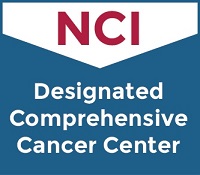Training Components and Activities - NSIP

Undergraduate students accepted into the 11-week NSIP are matched with UMGCCC faculty mentors to conduct projects in cutting edge areas of basic, translational and clinical cancer research.
Topics span the hallmarks of cancer and include targeted drug discovery, signal transduction, apoptosis and metastasis. For examples see the abstracts of recent intern projects.
- 2023 NSIP Symposium Program
- 2022 NSIP Symposium Program
- 2021 NSIP Symposium Program
- 2020 NSIP Symposium Program
- 2019 NSIP Symposium Program
- 2018 NSIP Symposium Program
- 2017 NSIP Symposium Program
- 2016 NSIP Symposium Program
- 2015 NSIP Abstract Program
- 2014 NSIP Abstract Program
- 2013 NSIP Abstract Program
- NSIP Intern Publications
 The program begins with a Laboratory Practice and Techniques course at Loyola University Maryland to provide hands-on training with methods interns will use in their research.
The program begins with a Laboratory Practice and Techniques course at Loyola University Maryland to provide hands-on training with methods interns will use in their research.
In addition to laboratory research, interns learn about current topics in cancer research and career paths in biomedical sciences through "Meet the Mentors" discussions and seminars in conjunction with the Office for Student Research. The "Translational Cancer Research: bench-to-bedside-and-back" lecture series and small group analysis of ongoing clinical trials with UMGCCC Fellows provides interns with specific examples of a translational pipeline in action. Interns gain direct exposure to clinical oncology through shadowing UMGCCC clinicians.
Social activities provide an opportunity for informal interactions with mentors and lab mates. These events allow interns to learn more about the UMGCCC research community and discover Baltimore attractions. At the conclusion of the internship, the interns deliver oral and poster presentations of their research to the mentors, program sponsors and research faculty. Here is a typical NSIP schedule.


